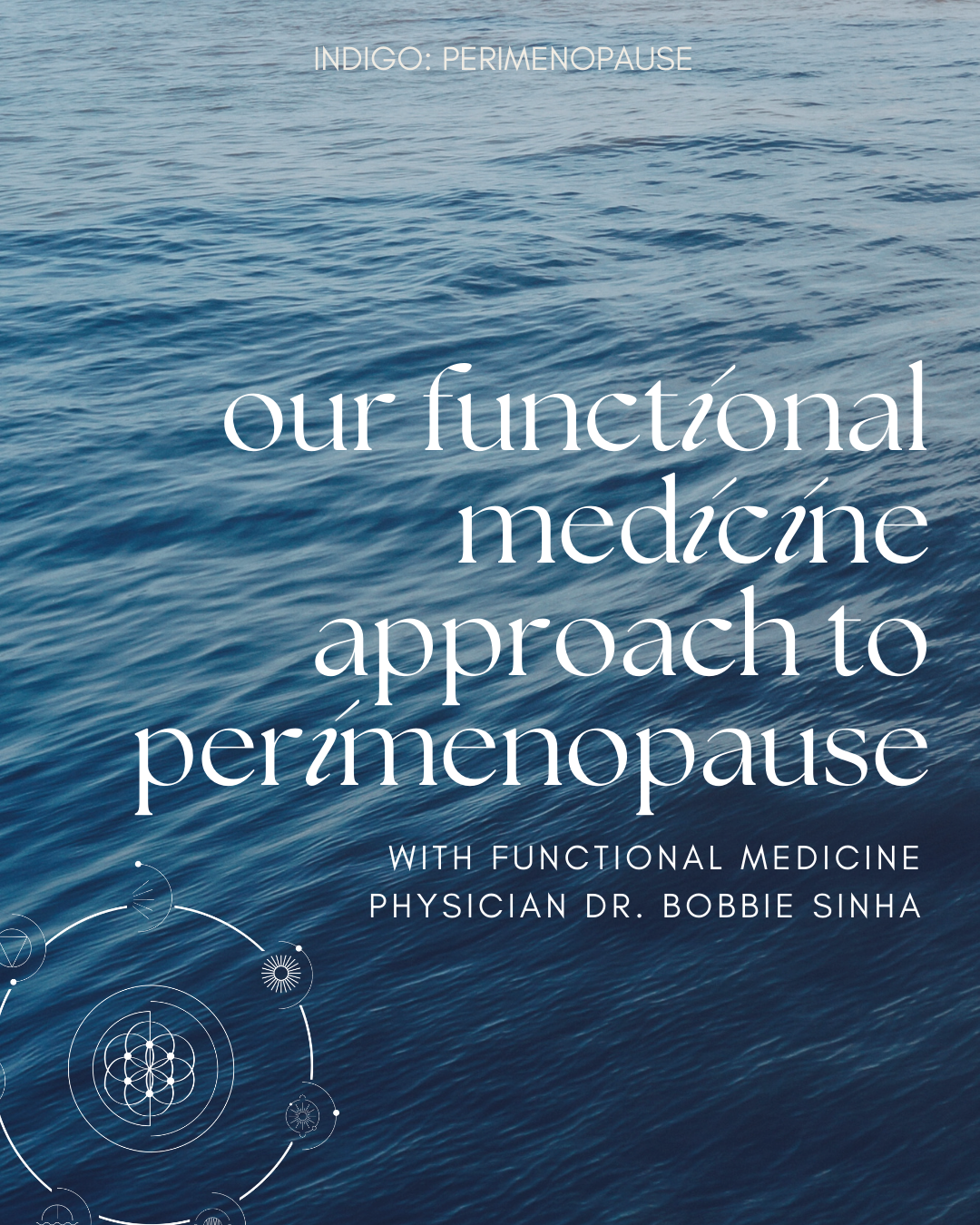a functional medicine approach to perimenopause
By Dr. Bobbie Sinha, Functional Medicine Physician at Indigo Wellness Group
When I work with women in perimenopause, I want them to know that we have many tools in our toolbox for supporting women through perimenopause, from nutrition and lifestyle shifts to lab testing, and sometimes Menopausal Hormone Therapy (MHT) when appropriate. My role is to take a comprehensive, holistic look at what will support each individual best.
Perimenopause itself is a time of transition and it’s a clinical diagnosis, meaning it’s based on symptoms rather than a single test. Symptoms can include hot flashes, vaginal dryness, irregular or painful periods, poor sleep, weight gain, and mood changes.
A Comprehensive Evaluation
I start by taking a thorough history, including life and childhood health, medical background, diet history, stressors, traumatic experiences, medications and supplements, surgeries, family history, and current symptoms. Every piece of the puzzle matters.
There’s no single test for perimenopause, but several labs can help us optimize health during this stage. Hormones fluctuate, though overall both estrogen and progesterone decline. Estrogen is especially important, with roles in insulin sensitivity, lipid metabolism, and even gut health.
Labs and Functional Testing
I often recommend:
Routine labs: thyroid panel, insulin, hemoglobin A1c, anemia panel, lipid profile
Nutrient panels: vitamin D, zinc, B12, magnesium
For deeper insight, functional tests are invaluable:
DUTCH Test – shows hormone metabolism and cortisol patterns
GI-MAP – evaluates gut health, which is central to estrogen metabolism
Because all hormones are interconnected — insulin affects cortisol, which affects estrogen, which is influenced by thyroid — these results help guide a whole-systems plan.
Nutrition & Lifestyle Foundations
While labs are pending, I work with women on foundational steps that can make a big difference in how they feel:
Increasing protein intake
Adding strength training & daily movement
Prioritizing quality sleep
Reducing stress
These strategies not only ease symptoms but also help address “menobelly,” the midsection weight gain common in this stage.
Personalized Care
No two women have the same perimenopause experience. That’s why I combine functional medicine testing, nutrition, lifestyle, and — when appropriate — MHT. With this individualized approach, perimenopause doesn’t have to feel overwhelming. It can be a manageable, and even empowering, transition into the next phase of life.
— Dr. Bobbie Sinha, Functional Medicine Physician

